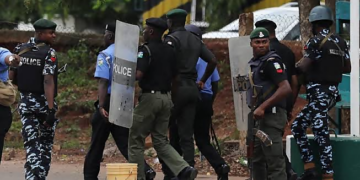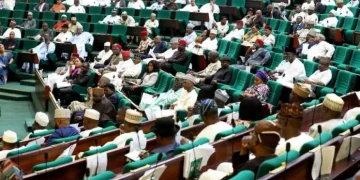Stakeholders have stressed the need for adoption of a community-based approach in addressing the problem of disarmament, deradicalisation and reintegration of repentant extremists in Nigeria.
They made the call at a four-day National Technical Workshop in Amnesty Management, Deradicalisation and Community-based Reintegration organised by the National Counter Terrorism Centre (NCTC), Office of the National Security Adviser (ONSA).
The workshop was organised in collaboration with International Alert, Nigeria, to contribute to policy, build skills, and enhance the capacity of institutions to effectively implement DDR programmes in an ever-evolving conflict space.
The national security adviser (NSA), Maj.-Gen. Babagana Monguno (rtd), said the workshop was a platform designed to promote collaborative learning and a shared purpose for advancing DDR by key stakeholders involved in Amnesty management, Deradicalisation and Community-Based Reintegration in Nigeria.
Monguno who was represented by the coordinator, National Counter -Terrorism Centre, ONSA, Rear Admiral Yaminu Musa (rtd) said the gathering would enable partners, participants and delegates to have a thorough strategic and operational level understanding of the concepts, approaches and new practices involved in the effective planning, implementation and coordination of DDR.
The NSA said the scale at which youths had been joining armed groups was alarming, saying that measures to deal with this trend needed to focus on preventing radicalisation among young people and transforming those who had taken up arms into normal civilians.
He said that DDR fundamentally aims to re-establish the state’s monopoly of violence and the control of force in a post conflict phase.
A former Chief of Defence Staff, Gen. Martin Luther Agwai (rtd), said that building confidence in the minds of everyone was key to achieving disarmament, demobilisation and reintegration.
Agwai said the problem in the case of Nigeria was to be able to identify who the leaders of the terrorists were and bring them to the table for discussion and disarmament.
He warned that the nation would continue to have the problems of refugee and internally displaced persons, if the DDR programme was not properly handled.
In North East Nigeria, Agwai said the combination of kinetic and non-kinetic approaches were critical to addressing the issues and expressed confidence that the recent approach would greatly address insurgency in the region.
The minister of interior, Rauf Aregbesola, who was represented by the deputy comptroller of correction, Sylvester Nwakauche, said the workshop was a testament to the government’s commitment to finding sustainable solutions to address the challenges posed by conflict, extremism, and violence.
Aregbesola said the challenges required a multi-disciplinary and collaborative approach, bringing together the expertise of government, civil society, academia, and the international community.
He said the issue of amnesty, deradicalization, and community-based reintegration was of paramount importance, especially in light of the increasing number of individuals who had been influenced by extremist ideologies.










